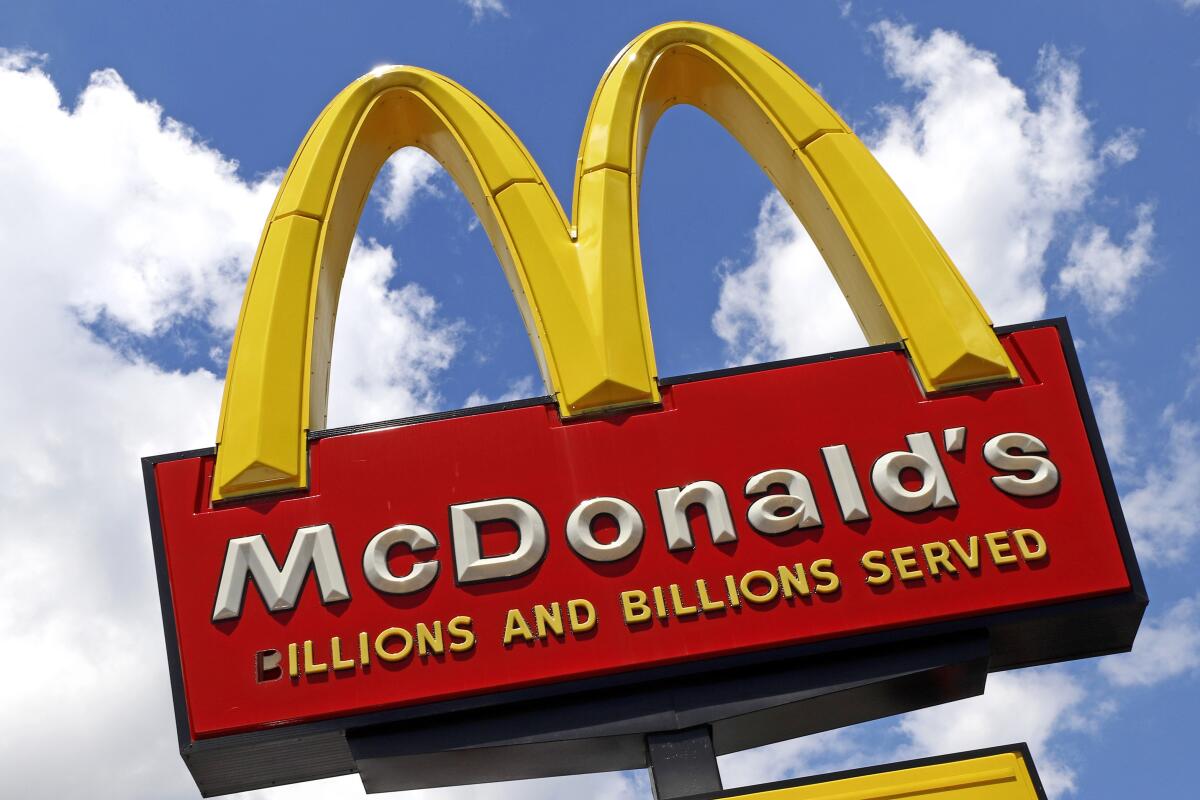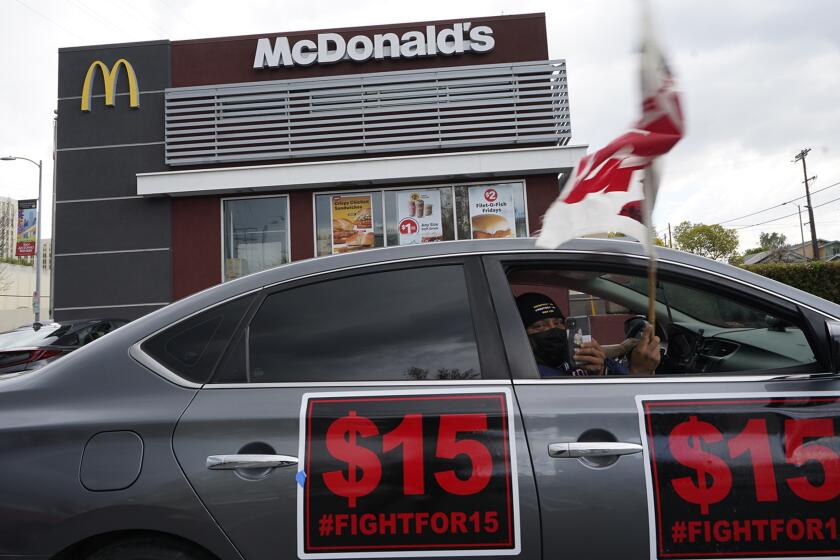Californians to vote on overturning a new law that could raise fast-food worker wages

- Share via
A California law seeking to increase wages and improve working conditions for fast-food workers has been set aside for now, after state officials said an effort by major restaurant and business trade groups to overturn the law had qualified as a measure on next year’s ballot.
The referendum seeking to overturn Assembly Bill 257 gathered sufficient valid voter signatures, the office of California Secretary of State Shirley Weber certified Tuesday. The group of businesses backing the effort, called Save Local Restaurants, had until Dec. 5 to submit about 623,000 California voter signatures. The proponents submitted more than 1 million signatures, of which more than 712,000 were deemed to be valid, according to the secretary of state’s office.
The announcement means the law, also known as the Fast Recovery Act, approved last year by the Legislature is suspended until California voters decide on the November 2024 ballot whether to repeal the law.
AB 257 sought to create a first-of-its-kind council of workers, corporations, franchisees and government representatives with a mandate to set wages and other workplace standards statewide.
Had the law gone into effect Jan. 1 as planned, the council would have had the authority to raise the minimum hourly wage for fast-food workers as high as $22 this year.
Almost as soon as California’s fast-food labor law had been signed, critics started trying to overturn it. Here’s what you need to know about AB 257.
Labor advocates said the legislation could transform collective bargaining, creating a precedent in the U.S. for negotiating workplace standards. The coalition of businesses opposing the law, led by the International Franchise Assn. and the National Restaurant Assn., argued the law would saddle businesses with higher labor costs and increase food prices.
Fast-food corporations and business trade groups including In-N-Out, Chipotle, Chick-Fil-A, McDonald’s, Starbucks and the National Restaurant Assn. donated millions to support the referendum effort, according to the nonpartisan Fair Political Practices Commission.
Save Local Restaurants launched its costly signature-gathering campaign to halt the law almost immediately after Gov. Gavin Newsom signed AB 257 into law on Labor Day.
The signature-gathering process was fraught. Service Employees International Union California, which co-sponsored AB 257 and opposed the referendum campaign, alleged signatures were obtained fraudulently and filed complaints in October with the secretary of state and attorney general’s offices urging action.
Mary Kay Henry, president of Service Employees International Union, said fast-food workers and the union were resolved to keep pushing AB 257. “No corporation is more powerful than half a million workers joining together to demand a seat at the table,” Henry said in an emailed statement.
International Franchise Assn. Chief Executive Matt Haller said in a statement: “Fortunately, now more than 1 million Californians have spoken out to prevent this misguided policy from driving food prices higher and destroying local businesses and the jobs they create.”
The Save Local Restaurants coalition did not immediately respond to a request for comment.
More to Read
Inside the business of entertainment
The Wide Shot brings you news, analysis and insights on everything from streaming wars to production — and what it all means for the future.
You may occasionally receive promotional content from the Los Angeles Times.












